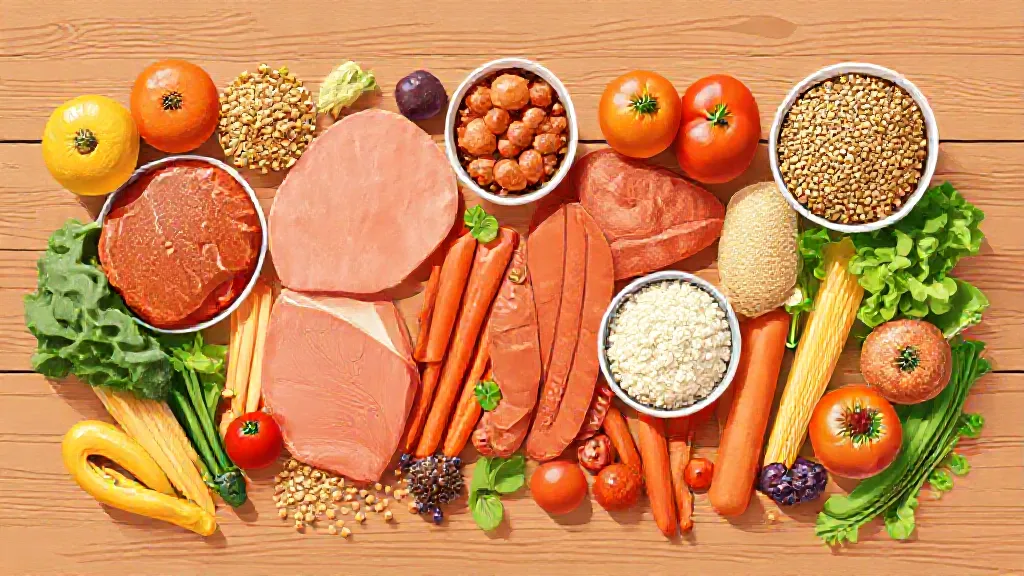Recovery is a crucial aspect of athletic performance, as it allows the body to heal, rebuild, and prepare for the next challenge. The foods you consume after exercise play a significant role in this process. Proper nutrition can enhance recovery, reduce muscle soreness, and improve overall performance in subsequent workouts.
In this article, we will delve into the best foods for sports recovery, examining their nutritional benefits and how they contribute to an athlete's recovery journey.
Understanding the Role of Macronutrients in Recovery
Macronutrients—proteins, carbohydrates, and fats—are essential for recovery. Each plays a unique role in repairing and rebuilding muscle tissue, replenishing energy stores, and supporting overall health.
Proteins are vital for muscle repair and growth, making them a top priority post-exercise. Carbohydrates, on the other hand, help restore glycogen levels, which are depleted during intense physical activity. Fats, while less critical immediately after exercise, are important for long-term energy and overall health.
The Power of Protein: Key Sources for Athletes
When it comes to protein, athletes should aim for high-quality sources. Lean meats such as chicken, turkey, and fish are excellent choices, providing essential amino acids necessary for muscle repair. Plant-based options like lentils, chickpeas, and quinoa are also effective, especially for vegan and vegetarian athletes.
Dairy products, including Greek yogurt and cottage cheese, are rich in protein and also offer calcium, which is important for bone health. Consuming protein within 30 minutes to two hours post-exercise can maximize recovery benefits.
Replenishing Glycogen: The Importance of Carbohydrates
Carbohydrates are crucial for replenishing glycogen stores that become depleted during exercise.
Foods like whole grains, fruits, and starchy vegetables should be included in post-workout meals. For instance, a banana paired with a scoop of peanut butter offers both carbohydrates and protein, making it an ideal recovery snack. Brown rice, sweet potatoes, and oats are also excellent options for restoring energy levels.
The timing of carbohydrate intake is essential, with the first two hours post-exercise being the most critical for glycogen replenishment.
Hydration: The Often-Overlooked Component of Recovery
While food plays a significant role in recovery, hydration is equally important. Water is essential for maintaining optimal bodily functions and aiding in the recovery process.
Dehydration can lead to decreased performance, increased muscle soreness, and longer recovery times. Athletes should aim to rehydrate after exercise, consuming water or electrolyte-rich drinks to replenish lost fluids. Coconut water and sports drinks can be beneficial, particularly after intense workouts that cause significant fluid loss.
Antioxidants and Inflammation: The Role of Fruits and Vegetables
Fruits and vegetables are packed with antioxidants, which help combat inflammation and oxidative stress caused by intense exercise. Berries, cherries, and leafy greens are particularly rich in these compounds. For example, tart cherry juice has been shown to reduce muscle soreness and improve recovery times.
Incorporating a variety of colorful fruits and vegetables into post-workout meals not only provides essential vitamins and minerals but also supports overall health and recovery.
Healthy Fats: Supporting Long-Term Recovery
Healthy fats, such as those found in avocados, nuts, seeds, and olive oil, play a role in reducing inflammation and supporting overall recovery. Omega-3 fatty acids, in particular, found in fatty fish like salmon and flaxseeds, have been shown to reduce muscle soreness and promote recovery.
Including these healthy fats in your post-exercise meals can enhance overall nutritional balance and support long-term recovery.
Meal Timing and Composition: Maximizing Recovery Benefits
The timing and composition of post-workout meals are crucial for effective recovery. A balanced meal containing protein, carbohydrates, and healthy fats consumed within two hours of exercise can optimize recovery.
For example, a grilled chicken salad with quinoa and a variety of colorful vegetables drizzled with olive oil provides a well-rounded nutrient profile. Planning meals and snacks around workout schedules can help athletes ensure they are meeting their recovery needs.
Conclusion: Personalizing Your Recovery Nutrition
Ultimately, the best foods for sports recovery will vary based on individual preferences, dietary restrictions, and specific athletic goals.
Athletes should experiment with different foods and timing strategies to find what works best for them. Consulting with a sports nutritionist can also provide personalized guidance tailored to specific needs. By focusing on a balanced diet rich in proteins, carbohydrates, healthy fats, and antioxidants, athletes can enhance their recovery, reduce muscle soreness, and improve their overall performance in future training and competitions.
